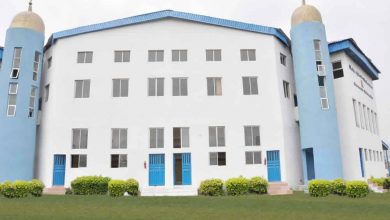
10 Importance of Islamic Education in Nigeria
Importance of Islamic Education in Nigeria – In the scope of education, Islamic education is very important for school students, even small children before entering the world of school also need to be given Islamic education so that when children enter the world of education, they will get used to it and they only need to add and implement it in everyday life. In the current era, Islamic education is very much needed for students, because with this modern era there are many negative impacts among students, for example, elementary school children who have smoked, dating and others, by instilling Islam in students and good direction then the students will avoid the negative effects of modern times. We’ll be discussing the various ways in which Islamic education is important for Nigeria, including its role in promoting morality and ethics, encouraging critical thinking, fostering community and social cohesion, combating extremism and terrorism, providing vocational skills, preparing students for higher education, and promoting cultural awareness and appreciation. So let’s dive in and learn more about why Islamic education is so important in Nigeria.Information Guide Nigeria
Read Also: 10 Importance Of Housing In Nigeria
👉 Relocate to Canada Today!
Live, Study and Work in Canada. No Payment is Required! Hurry Now click here to Apply >> Immigrate to CanadaOrigin Of Islamic Education In Nigeria
Islamic education in Nigeria has a really interesting history, so let me break it down for you in simple English.
First off, Nigeria has a long history with Islam that dates back to the 11th century when Muslim traders first arrived in the area. However, Islamic education as we know it today in Nigeria began in the 19th century with the arrival of Islamic scholars and teachers from other parts of the Muslim world. Importance of Islamic Education
These scholars came from places like Egypt, Saudi Arabia, and Sudan and brought with them their knowledge of Islamic teachings and traditions. They set up schools and mosques in cities like Kano and Sokoto and began to educate young Nigerians in the ways of Islam.
Read Also: 10 Importance Of the Hospitality Industry In Nigeria
In the early days, Islamic education in Nigeria was mainly focused on the memorization and recitation of the Quran, but it soon expanded to include subjects like Arabic grammar, Islamic law, and theology. The schools that were established by these scholars were known as “madrasas,” and they became an important part of the educational landscape in Nigeria. 20 Best University in Nigeria To Study Political Science
Over time, Islamic education in Nigeria evolved and became more formalized. In the early 20th century, the British colonial government began to regulate education in Nigeria, and Islamic schools were required to adhere to certain standards and curricula. This led to the establishment of formal Islamic schools, known as “Islamiyyah” schools, which were recognized by the government and granted official certification.
Despite the formalization of Islamic education, traditional madrasas continued to thrive and remain an important part of the educational system in Nigeria. Today, both types of schools exist in Nigeria and provide education to millions of students. 30 Best Universities In Nigeria To Study Linguistics
In addition to schools, Islamic education in Nigeria also takes place in mosques and through private tutoring. Many families hire private tutors to teach their children the Quran and other Islamic subjects, and this type of education is often seen as a way to ensure that children receive a strong foundation in Islamic teachings.
👉 Relocate to Canada Today!
Live, Study and Work in Canada. No Payment is Required! Hurry Now click here to Apply >> Immigrate to CanadaIslamic education has played an important role in Nigerian society, not just in terms of religion, but also in terms of culture and tradition. It has helped to shape the country’s identity and has contributed to the development of a unique Nigerian-Islamic culture.
Read Also: 10 Importance Of Highlands In Nigeria
Islamic education in Nigeria has a rich and complex history that has evolved over the centuries. From its origins in the 11th century to the arrival of Islamic scholars in the 19th century and the formalization of education in the 20th century, Islamic education in Nigeria has had a profound impact on the country’s culture and identity. Today, Islamic education remains an important part of the educational landscape in Nigeria and continues to play a vital role in shaping the future of the country.NYSC Portal
10 Importance of Islamic Education in Nigeria
Islamic education plays a crucial role in Nigeria, a country with a significant Muslim population. Here are reasons why Islamic education is essential in Nigeria: JAMB Portal
-
Develops Moral Values
One of the most significant advantages of Islamic education in Nigeria is its ability to develop moral values. Islamic teachings instill moral values such as honesty, sincerity, and compassion, which are essential for building a just and prosperous society.JAMB Result
-
Promotes Unity
Islamic education promotes unity and togetherness among people of different backgrounds and social statuses. It encourages mutual respect, cooperation, and understanding, and teaches that everyone is equal in the eyes of Allah.
Read Also: 10 Importance of Independence in Nigeria
-
Improves Literacy
Islamic education in Nigeria also contributes to improving literacy. Islamic schools offer basic education, including reading and writing, which is fundamental to the development of individuals and society.
-
Reduces Crime
Islamic education in Nigeria is a powerful tool for reducing crime. It teaches that crime is against the teachings of Islam and that it is important to be truthful and just. This creates a sense of responsibility among people and reduces the likelihood of criminal activities.
-
Enhances Critical Thinking
Islamic education encourages critical thinking, reasoning, and analytical skills. Students learn to analyze and question different issues, and to make informed decisions based on Islamic principles and teachings.200 romantic love message for her
-
Fosters Spiritual Growth
Islamic education in Nigeria fosters spiritual growth and promotes the love of Allah. It teaches the importance of prayer, charity, and compassion, and encourages individuals to develop a strong connection with Allah.
-
Provides Entrepreneurial Skills
Islamic education also provides entrepreneurial skills, which are essential for economic growth and development. Islamic teachings emphasize the importance of honest and fair business practices, which create a conducive environment for business growth and development.
-
Encourages Respect for Human Dignity
Islamic education encourages respect for human dignity and human rights. It teaches that every individual has a right to life, education, and basic needs, regardless of their social or economic status.
-
Builds Strong Communities
Islamic education in Nigeria also builds strong communities. Islamic schools provide a platform for individuals to come together and work towards common goals. This creates a sense of belonging and fosters a strong community spirit.105 goodmorning messages
-
Promotes Tolerance and Harmony
Finally, Islamic education in Nigeria promotes tolerance and harmony. It teaches that every individual has a right to practice their religion and beliefs and that it is essential to coexist in peace and harmony. This creates a conducive environment for interfaith dialogue and promotes religious harmony.
Islamic education is essential for the development and progress of Nigeria. It provides a strong foundation for moral values, promotes unity, fosters spiritual growth, and builds strong communities. It also enhances critical thinking, reduces crime, promotes tolerance and harmony, and provides entrepreneurial skills. Islamic education in Nigeria is not only beneficial for the Muslim community but for the country as a whole. It is an important tool for creating a just and prosperous society, and for promoting peace and harmony among people of different backgrounds and social statuses.
Read Also: 10 Importance of Food Security in Nigeria
Conclusion
Islamic education is an essential component of Nigeria’s society and its future. It is a powerful tool for promoting morality, critical thinking, community, and social cohesion while combating extremism and terrorism. It also provides valuable vocational skills and prepares students for higher education, helping them to achieve success and contribute to the country’s development. Moreover, Islamic education promotes cultural awareness and appreciation, helping to build bridges between different communities and creating a more inclusive and harmonious society. In this way, Islamic education is a critical aspect of Nigeria’s progress, and investing in it will undoubtedly contribute to a stronger, more prosperous, and more peaceful future for all Nigerians.
Check JAMB RESULT
Check and Confirm: How much is Dollar to Naira








